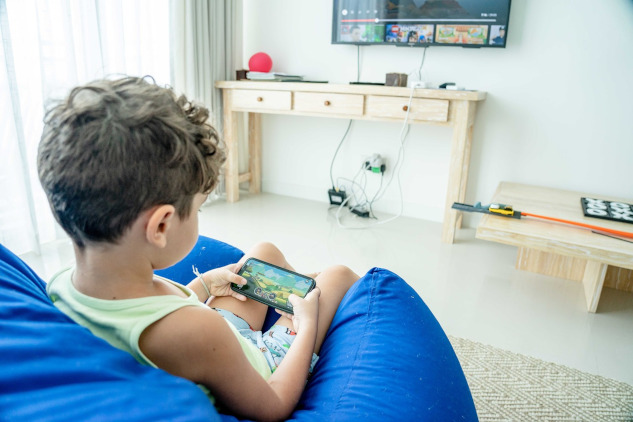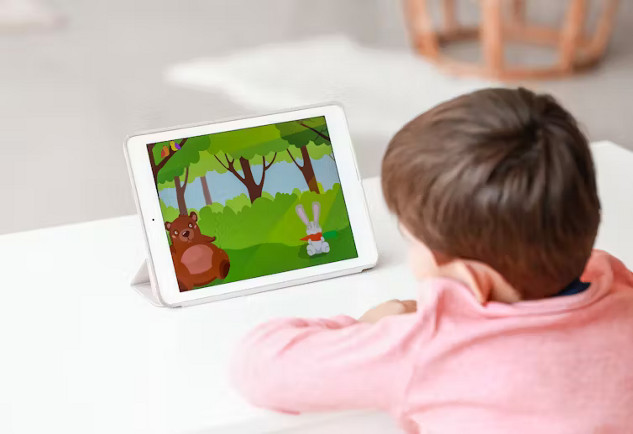
Running effective workplace meetings requires clear objectives, defined roles, and streamlined agendas. Learn productive meetings strategy to reduce time-wasting and maximize productivity. From setting a clear purpose to encouraging active participation, these strategies help ensure that meetings drive results and improve team collaboration. Don’t let meetings drag—turn them into valuable resources with our simple, actionable tips.

Men are increasingly emotionally disconnected, leading to rising loneliness rates compared to women. Studies show traditional masculinity norms limit male intimacy and emotional expression, resulting in health and social issues. By relying too heavily on nuclear family structures and partners for support, men often miss out on broader emotional networks, worsening isolation. How can men break free from these outdated expectations and build healthier emotional connections?

Sibling feuds can last a lifetime if not resolved. The Oasis reunion offers an example of how sibling relationships can heal, but what can we learn from it? Discover proven strategies for resolving sibling estrangement, including counseling, conflict resolution techniques, and building emotional awareness. Whether it's high-profile feuds like Liam and Noel Gallagher or personal family matters, healing sibling relationships can lead to stronger family bonds.

A global study finds that only 14% of preschoolers meet movement guidelines for physical activity, screen time, and sleep. This article explores how physical activity, limited screen time, and good sleep are essential for healthy growth and development in young children. Learn how global regions compare and what steps can be taken to improve adherence to these vital health recommendations.

Children with sensory processing disorder (SPD) struggle to interpret sensory information, leading to behaviors like hyperresponsiveness, hyporesponsiveness, or sensation seeking. These sensory issues can disrupt daily activities like eating, dressing, or social interactions. Recognizing the signs of SPD, such as aversion to textures or sound sensitivity, can help parents support their children. Occupational therapists can assess and create strategies to improve their child’s sensory experiences and daily life.

Long-distance caregiving presents unique challenges, from emotional stress to managing logistics across time zones. This article explores practical strategies for overcoming caregiving challenges, including building support networks, utilizing technology, and accessing financial resources. With the right tools, distant caregivers can provide meaningful assistance to their loved ones while balancing their own well-being. Learn how to navigate long-distance caregiving with confidence and resilience.

Digital environments for kids are often designed to keep them hooked. This article highlights the common tactics used in kids’ apps and games to maximize screen time and offers three actionable steps parents can take to help their children make better digital choices and manage their screen time effectively.

Building meaningful friendships in adulthood can be challenging, but it’s essential for mental and emotional wellbeing. This article offers practical strategies to build friendships, including putting yourself in social situations you enjoy, trying new activities, and becoming a master of the follow-up. Learn how scheduling social activities and prioritizing relationships can help you nurture meaningful connections and overcome adult loneliness.

Research shows that even though sharing sexual fantasies with a partner can enhance intimacy and trust, but it’s not always the best option. This article explores the psychology of sexual fantasy disclosure, the role of trust in relationships, and the potential risks and benefits of sharing fantasies. Find out how people decide whether to open up and what it means for their relationships.

Research shows a significant link between tablet use by young children and increased emotional outbursts, including anger and frustration. Children who spend more time on tablets may struggle with emotional regulation, leading to a cycle of increased screen time and emotional challenges. Learn how parents can manage screen time to foster better emotional development in young children.

This article explores how different families express emotions. It highlights the contrasting dynamics between two families—one that conceals emotions and another that overtly expresses them. The piece delves into the impact of these differences on family relationships and individual well-being, offering insights into navigating diverse emotional landscapes within families.
- By Nelly Some

This article delves into "Senior Housing Transition Challenges" and "Choosing Senior Care Facilities," providing essential insights for families navigating these decisions. It highlights four major areas where seniors face difficulties during transitions, such as losing independence and adjusting to new routines. The piece underscores the emotional and psychological impacts of these changes, aiming to equip families with the understanding needed to support their loved ones effectively.

Discover the 4 key rules for successful co-parenting after divorce. From mutual respect to consistency, learn how to navigate the challenges and build a healthy co-parenting relationship.

New research suggests that parental alcohol use before conception can accelerate aging in offspring and increase their susceptibility to diseases. Learn how drinking impacts a child’s long-term health and the potential biological effects that go beyond mental and social development.

Explore the concept of divine appointments and how embracing spiritual encounters can lead to deeper purpose and joy through meaningful connections in your life.

Autism and ADHD often co-occur, forming AuDHD, where individuals experience traits from both conditions, leading to unique challenges. This article explores five essential facts about AuDHD, including why it was only recently diagnosable, how conflicting traits can cause distress, and the importance of tailored treatment options for improving daily functioning. Understanding AuDHD helps individuals and caregivers better manage mental health and overall well-being

Financial hardship is one of the largest drivers of loneliness, affecting how we interact with others. This article explores the link between financial struggles and social isolation, as well as the severe health impacts that come with persistent loneliness. Understanding the connection and adopting low-cost social activities can help alleviate the emotional strain caused by financial difficulties.

Age-gap relationships between Millennial women and Gen Z men are becoming increasingly common, challenging old stereotypes. These relationships offer emotional depth, mutual admiration, and a refreshing take on modern love. Gen Z men, with their progressive views, are seeking out Millennial women for their maturity and life experience, while Millennial women enjoy the energy and fresh perspectives younger men bring. Discover why these age-gap relationships are more than just a trend.

Toxic relationships can undermine your health, contributing to chronic illness, anxiety, and depression. This article explores how interpersonal dynamics can cause physical and emotional distress, leading to inflammation and compromised immunity. Learn how breaking free from harmful patterns can be the key to healing your body and mind.
- By Alan Heeks

In an uncertain future, growing community is essential for resilience. This article explores how collective action, inspired by nature's ecosystems, can strengthen communities. From wild margins to community-supported agriculture, diverse skills, mutual support, and inclusive participation are key to thriving in challenging times.

In today’s politically and culturally divisive climate, learning to disagree without disrespect is more important than ever. Bridging the divide between differing opinions fosters understanding, empathy, and constructive dialogue. This article delves into the importance of respectful discourse, why it matters for our democracy, and how leaders and citizens alike can embrace healthy conflict to find common ground and solutions to societal challenges.

Positive sibling relationships have a profound impact on a child's development. Discover how parents can foster sibling bonds, resolve conflicts, and create supportive, lifelong connections between siblings. Learn about siblings' critical role in child development, creative ways to manage sibling rivalry, and practical strategies to promote empathy, cooperation, and fairness. Strengthen the sibling bond with science-backed parenting techniques.


















